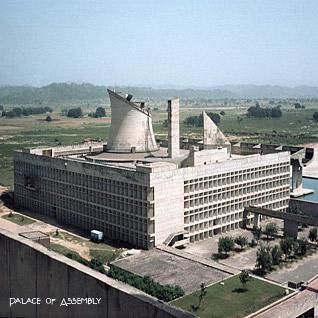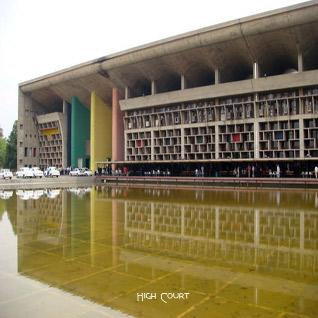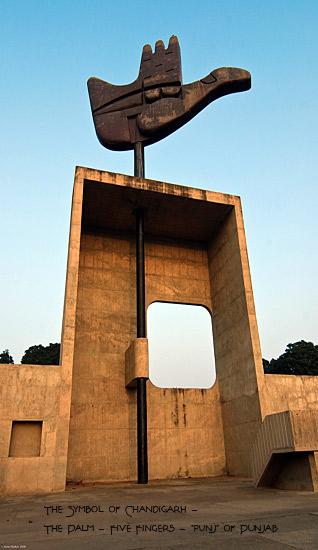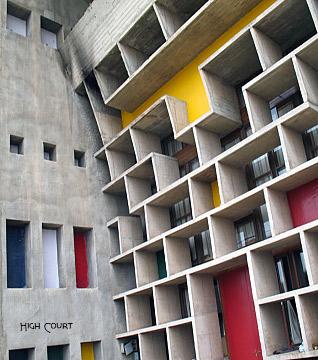Partition
Partition plus 62-years: Chandigarh, Punjab's Capital?
Sixty-two years have gone by since the cataclysmic events of 1947 - the Partition of Punjab and the loss of half of the Sikh homeland to newly created Pakistan - led to the sectarian violence that took a toll of more and a million lives and sent millions more as refugees in either direction of the haphazardly carved India-Pakistan border.
Many of those who have personal memories and knowledge of those days are now, because of the passage of time, moving on. It has therefore become urgent that we record their stories for the benefit of future generations.
Encouraged by the phenomenal response to our "1984 & I" project along the same lines, we at sikhchic.com once again turn to you, our readers, to share with us your memories, recollections, opinions and perspectives on 1947 and Partition. Please tell us how the Partition has touched your lives and how it has shaped your perspective on life. More importantly, please record the stories of aging parents, granparents, relatives, friends, colleagues, neighbours - and share them with us so that we in turn can publish them in these pages and, at the same time, create a permanent repository of the same.
We look forward to receiving your stories ... and photos. The following is the fifth piece in our new series, "THE PARTITION & I".
During the partition of British India into two new nations - India and Pakistan - in 1947, the region of Punjab was also split between India and Pakistan.
The Indian side of the bifurcated Punjab required a new capital city to replace Lahore, which became part of Pakistan's Punjab after the partition. After several plans to make additions to existing cities were found to be infeasible for various reasons, the decision to construct a new and planned city was undertaken.
The city derives its name from Guru Gobind Singh's famous epic "Chandi di Vaar" in which he proclaimed that the only Chandi (Goddess of War) Sikhs recognized was the sword. Thus, the name "Chandigarh" literally translates as "The Fort of the Sword".
The name also harks to Chandi Mandir, a temple dedicated to the Hindu goddess in Indian mythology, Chandi, located in nearby Panchkula District.
Of all the new town schemes in independent India, the Chandigarh project quickly assumed prime significance, because of the city's strategic location as well as the personal interest of Jawaharlal Nehru, the first Prime Minister of the new minted India. Commissioned by Nehru to reflect the new nation's modern, progressive outlook, Nehru famously proclaimed Chandigarh to be "unfettered by the traditions of the past, a symbol of the nation's faith in the future."
The City of Chandigarh was designed by the Swiss born French architect and urban planner, Le Corbusier in the 1950s. He and his cousin Pierre Jeanneret, in addition to working on Chandigarh's urban plan, also designed its public offices, furnishing them to the smallest detail.
On 1 November, 1966, a newly-formed Indian state of Haryana was carved out of the eastern portion of the Punjab, in order to create Haryana as a majority Hindi speaking state, while the western portion of Punjab retained a mostly Punjabi-speaking majority and became the current day, further truncated Punjab.
The City of Chandigarh, located on the border, was to remain Punjab's capital while a new capital for Haryana was to be built. During the interim, Chandigarh would serve as a Union Territory, temporarily serving both states as a capital.
During the succeeding decades, the Central government has repeatedly reneged on its undertaking to restore the sole status of Chandigarh as Punjab's capital.
The transfer of Chandigarh to Punjab was to be completed in 1986, for example, in accordance with an agreement signed in August 1985 by Rajiv Gandhi, the then Prime Minister of India, with Sant Harchand Singh Longowal of the Akali Dal. This was to be accompanied by the creation of a new capital for Haryana, but the transfer was once again inexplicably delayed.
This has been followed by a convoluted and meandering discussion about which villages in southern districts of Punjab should be transferred to Haryana, and about which Punjabi-speaking villages should be transferred to Punjab.
Thus, the matter has been dragged through countless courts commissions, committees, studies and reports - each time the ruling being that Punjab must be given its due.
But the Central government, more half a century later, continues to drag its feet - as it does with anything related to the Sikhs and Punjab.
On 15 July 2007,Chandigarh became the first Indian city to go smoke-free. Smoking at public places has been strictly prohibited and considered as a punishable act by Chandigarh Administration. That was followed up by a complete ban on polythene bags with effect from 2 October 2008.
Chandigarh, the capital of Punjab, remains the pride of the sub-continent as its most progressive city. Today, almost as old as India itself, Punjab's capital is miraculously without much of the unnecessary squalor that remains, even six decades after independence, as the unifying hall-mark of the rest of the nation.
 
September 20, 2009
Conversation about this article
1: I.J. Singh (New York, U.S.A.), September 20, 2009, 4:20 PM.
A beautiful city and obviously another nail in the betrayal of Punjab, Punjabis and Sikhs. With such a track record of broken promises and the clear documentation of tyranny, how then does one even begin to trust the government of India as it exists today or has for the past 60 years?
2: Irvinder Singh Babra (Brantford, Ontario, Canada), September 20, 2009, 7:06 PM.
Punjab, Punjabis and Sikhs have made India what it is, despite all the betrayals and hardships.
3: Leena (San Jose, California, U.S.A.), September 20, 2009, 11:21 PM.
If you have recently visited Chandigarh, it is no more the 'pride'. The neighbouring cities (Panchkula and others) that are in Haryana are coming out ahead, neat and beautiful. Under the corrupted Punjab Govt., if Chandigarh is transferred, I wonder what its future will be.
4: Irvinder Singh Babra (Brantford, Ontario, Canada), September 21, 2009, 10:53 AM.
Is Haryana corruption-free, Leena? You won't have a shock with Chandigarh's transfer; Punjab will take care of itself ...
5: Leena (San Jose, California, U.S.A.), September 21, 2009, 11:43 AM.
No doubt Punjab can take care of anything once it has made up its mind, and also Haryana is not corruption free. I am skeptical because it seems like Haryana somehow knows how to spend right amount in planning and providing facilities to its people. SAS Nagar and Panchkula cities were almost similar about 15 years back, look at SAS Nagar now - it is deteriorating, construction anywhere, no proper parking or roads and compare it with Panchkula. Also, look at how multinationals, modern architecture, community parks and cleanliness is throbbing in Panchkula. This makes me very doubtful.
6: Ajaib Singh (Chandigarh, Punjab), September 21, 2009, 11:54 AM.
Leena ji: This may have something to do with all the mischief and neglect directed by the Central government - and Haryana too - against Punjab. The Sikhs and Punjab have led the sub-continent in every field ... EVERY field! ... until and unless their endeavours have been sabotaged. And they have excelled DESPITE the repeated badmaashi of the desis, not because of any support or encouragement from them.
7: Gurjender Singh (Maryland, U.S.A.), September 22, 2009, 6:38 PM.
I.J. Singh is right in that it is obviously another nail in the betrayal of Punjab, Punjabis and Sikhs. But now, we are betraying ourselves by not speaking Punjabi as most of the Sikhs and Punjabis of Chandigarh are forgetting their roots and speaking Hindi.
8: Kaviraj Singh (Boston, MA, U.S.A.), September 23, 2009, 1:50 PM.
I totally agree wtih Gurjender Singh ... we don't speak Punjabi at all. I recently attended the Kaur Foundation conference in Washington, D.C. and one of the speakers said how shocked he was that not a word of Punjabi was spoken at the conference; he spoke Punjabi with the cab driver who drove him to the conference! Many say that they are not comfortable speaking Punjabi in public settings ... the only solution is to speak it with close friends/relatives who can correct your words if needed and don't mind if you mess up a word here or there, this will boost your confidence and then you can speak it more freely and fluently.
9: Ashishpal singh (India), July 29, 2011, 1:51 AM.
After the tragic Partition of 1947, Punjab has been further divided - twice - in 1966 and 1971, when Haryana and Himachal were created. Today's Punjab, where a majority of Sikhs live, is but a quarter of the pre-partition Punjab.






